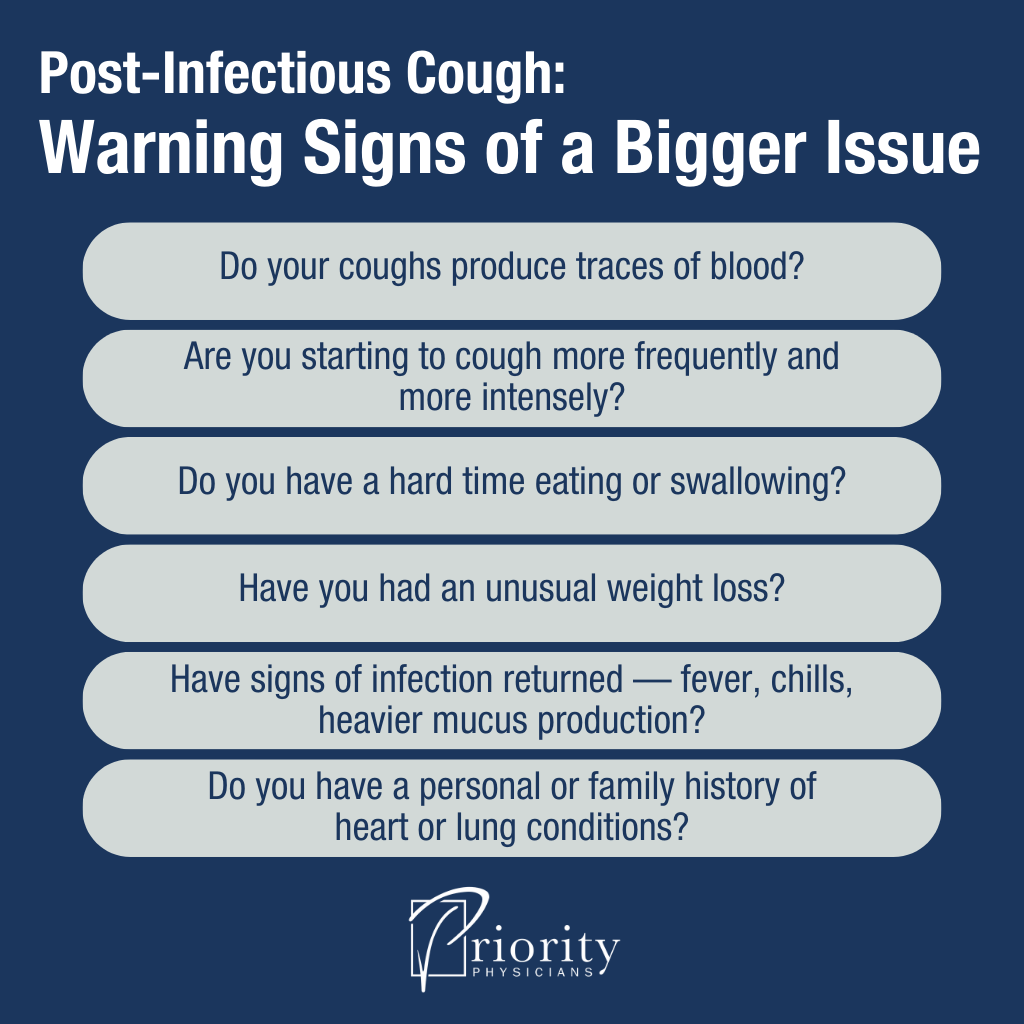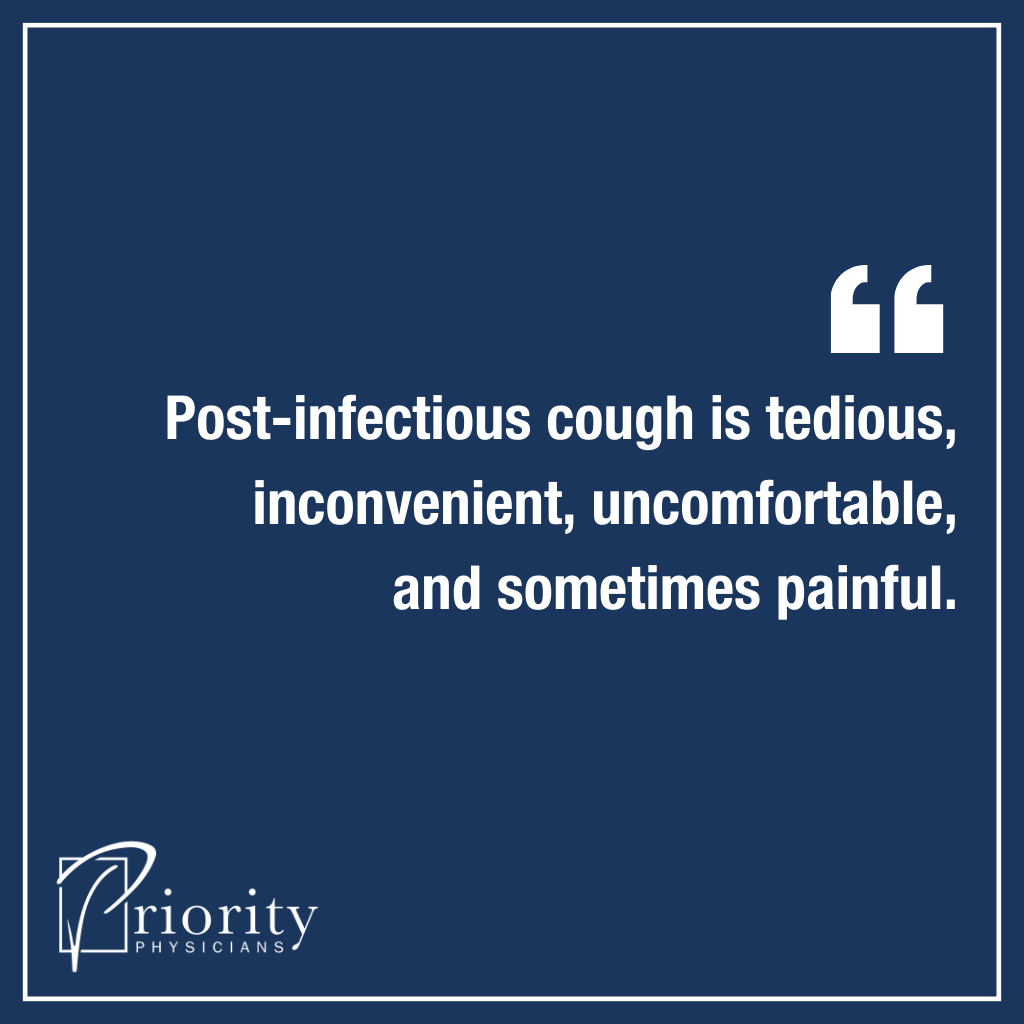If you’ve ever had a cough you just can’t seem to get rid of, you know how tiresome it can be. (And not just for you: In this post-COVID era, your lingering cough may earn you some dirty looks.)
Perhaps you were sick a few weeks ago, but you’re better now — no more runny nose, sore throat, fever, or body aches.
So, why do you still have a post-infectious cough? Are you still sick? Do you have another infection? Do you need antibiotics?
What’s a Post-Infectious Cough?
A post-infectious cough is a cough that persists well after your original illness is gone.
Several weeks ago, when you first got sick, your immune system likely responded to the infection by creating inflammation within your throat or upper airways. This inflammatory response is actually helpful — it’s your body’s way of tackling infections, whether viral or bacterial.
However, that inflammation can also tickle or irritate your throat and trigger coughing spasms. The more you cough, the more you prolong the irritation. The greater the irritation, the more inflammation occurs.
It’s a frustrating cycle: inflammation, irritation, inflammation, irritation… Add in a nagging post-nasal drip, and that unfortunate cough may become even worse. Thankfully, a post-infectious cough is typically only contagious for a little while after your original infection.

Stopping the Cough-Inflammation Cycle
So, how do you make a persistent post-infectious cough disappear?
You could wait it out, but the cough-inflammation cycle can continue for six to eight weeks after the original infection is gone. That’s a long time to hang on for eventual relief.
Instead, for any sort of lingering cough, it makes more sense to speak with your doctor, especially if your cough interferes with your sleep or your ability to work. A cough is actually the most common reason patients consult their primary care doctor, resulting in 30 million clinical visits a year.
If there’s one thing I hear often from patients stuck in the cough-inflammation cycle, it’s a request for antibiotics. But will a post-infectious cough respond to antibiotics? Most of the time, no. Antibiotics won’t resolve the cough if there’s no real bacterial infection behind it.
So, before prescribing, I’ll first ask you several questions about the nature of your cough, particularly to determine if the infection is still present. I’ll look for potential warning signs of a bigger issue:
- Do your coughs produce traces of blood?
- Are you starting to cough more frequently and more intensely?
- Do you have a hard time eating or swallowing?
- Have you had unusual weight loss?
- Have signs of infection returned — fever, chills, heavier mucus production?
- Do you have a personal or family history of heart or lung conditions?
With other possible medical issues ruled out, I can focus your treatment on stopping that cough-inflammation rollercoaster.
I may prescribe either cough suppressants or steroid inhalers (Advair, Flovent) that go straight to your throat and upper airway to suppress and clear inflammation. Many patients benefit from the combined use of both a suppressant and an inhaler.

Post-Infectious Coughing: The Takeaway
There’s no question that a post-infectious cough is tedious, inconvenient, uncomfortable, and sometimes painful.
At Priority Physicians, we want to rid you of that nasty cough. If you’ve been trying to manage a persistent cough yourself, reach out for assistance from our team. That goes for any long-term cough, whether it’s an isolated symptom or a post-infection leftover.
P.S.: It’s cold and flu season! Share this blog post with friends or family so they know how to manage a pesky cough of their own.

